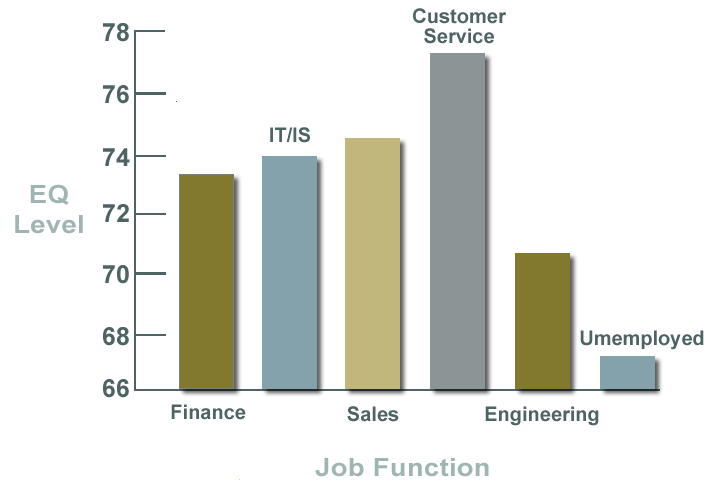By Lac D. Su, M.S. and Nick Tasler, M.S.
When one thinks of world class inventors and innovative thinkers, such as Thomas Edison or Steve Jobs, we tend to think mostly of creative geniuses who occasionally channeled their boundless mental power into light bulbs and Macs. We imagine them disappearing into the sort of mysterious, isolated place where only the truly brilliant ever venture, only to reappear days or months later to boldly proclaim “it’s alive!” or at least “it’s an iPhone!”
We don’t typically hear about the important role that emotional intelligence (EQ) plays in the process of innovation. Some still regard EQ as that ‘touchy-feely’ force that makes us work and play well together. We know that leaders with higher EQs are much more apt to retain their employees, and that sales and service people with high emotional intelligence log far better numbers than their low EQ counterparts. That is probably why most of us tend to see emotional intelligence as the yang to the yin of technical skills that we credit with product and process innovation.
But as the Industrial Revolution continues to become a more distant spec in the rear-view mirror of the new knowledge economy, the rules of innovation are being re-written. According to innovation Guru Tim Brown, whose design firm was recently named by Fast Company as the 5th most innovative company in the world, the design of innovative processes and products requires a more “human-centered” approach than traditional R&D methods incorporate. It requires skills such as empathy, optimism and collaboration. In other words, it requires emotional intelligence skills. The reason, Brown argues, is that a skill like empathy allows us to see things from the perspective of many different kinds of people, which is a key ingredient for creating a consumer product or redesigning a people-driven process. The increased complexity of today’s products and processes mandates interdisciplinary collaboration.
So, engineers must be able to connect not only with other engineers, but also with professionals outside their department, and with the perspectives and the preferences of customers they’ve never even met. It’s a tall task, especially when you consider that many engineers—the people most often charged with innovation—tend to have the lowest EQ skills in the workforce.

The Hidden Side of EQ
The good news is that anyone can develop EQ skills… even engineers. In our work at TalentSmartEQ, we find that motivation is the biggest hurdle for developing EQ skills, especially for engineers. It’s more often a case of not seeing the need to develop EQ skills than not having the capacity for it. Most engineering professionals enjoy the technical aspects of their job, and they don’t have a burning desire to become a leader of people. One engineer at a Fortune 500 company that we spoke to recently summed this sentiment up best when he told us that he had actually requested to be demoted so that he could get back to focusing on the part of his job he loved.
Innovation is perhaps the single most important performance indicator for engineering departments. Developing emotional intelligence for the purpose of promoting peace and harmony or good leadership might not resonate with engineers, but developing skills like empathy and effective collaboration to foster innovation is an engaging appeal that engineers can’t afford to ignore.
Discovering & Developing EQ
It’s within everyone’s reach to read and understand other people. Millions of years of evolution have literally programmed this ability into our DNA. It just takes the right development techniques to make this skill blossom. The first step is understanding what emotional intelligence is, and the second step is incorporating it into your everyday behavior.
ABOUT THE AUTHOR:
Lac D. Su, M.S.
Lac D. Su is the Director of Strategic Alliances for TalentSmartEQ, the leading provider of emotional intelligence tests, products, and training. He forms and manages relationships with key TalentSmartEQ resellers and assists clients with the implementation of skill development initiatives.